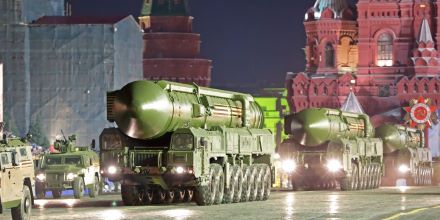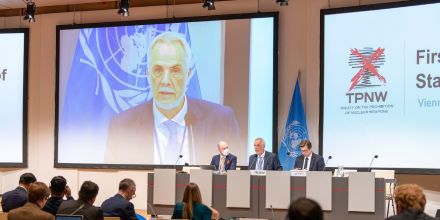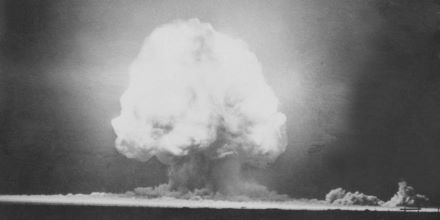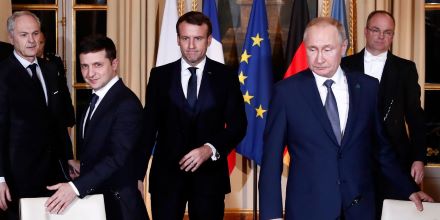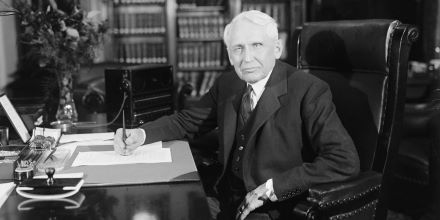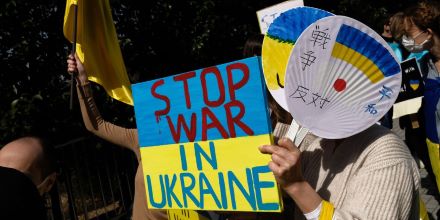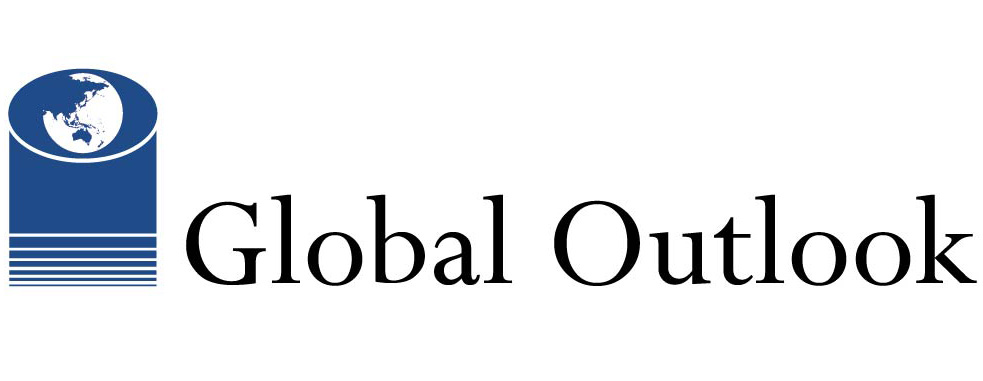
Curated expert opinion on intractable contemporary issues
Global Outlook: Cooperative Security, Arms Control and Disarmament
How Much Damage Have Putin’s Threats Done to the Nuclear Non-Proliferation Regime?
By Ramesh Thakur | 19 July, 2022
Russia’s invasion of Ukraine, it’s fair to say, has already profoundly shaped the global discourse on nuclear weapons. In the deliberations at the inaugural meeting of the states parties of the Treaty on the Prohibition of Nuclear Weapons in Vienna last month, the Ukraine war cast a long shadow over the utility and limits of nuclear weapons as a deterrent and as a tool of coercive diplomacy
Special Interview with Alexander Kmentt, President, First Meeting of States Parties to TPNW
By Satoshi Kinoshita | 11 July, 2022
Seikyo Shimbun has generously allowed republication of their interview with Ambassador Alexander Kmentt, President of the First Meeting of States Parties to the TPNW which was held in Vienna from 21-23 June 2022. Ambassador Kmentt gave this interview to Seikyo Shimbun on 24 June 2022 and it was first published on 6 July 2022.
The Nuclear Taboo is Key to Preventing Collapse of the Nuclear Order
By Rakesh Sood | 06 July, 2022
The nuclear scenario today appears confusing. On one hand, the nuclear taboo has held, the NPT is a near universal treaty, and nuclear weapon stockpiles are a fourth of what they were at the height of the Cold War, and yet, on the other hand, there is a perception that nuclear risks are higher than before.
Cynicism Rears its Head in the War in Ukraine
By Chung-in Moon | 05 July, 2022
In the space of just over four months, the Ukraine war has turned into an exhausting global conflict that has already left the West feeling increasingly fatigued.
War and Nuclear Weapons: Putting the Cart Before the Horse
By Joelien Pretorius | 04 July, 2022
A ban is not an exercise in abstract morality, but involves questions of power, most importantly how people can amass discursive power to change the rules and operation of the international system to the extent that wars of aggression became “presumed against”.
Whither Nuclear Arms Control and Disarmament After Ukraine? A Japanese Perspective
By Nobuyasu Abe | 30 June, 2022
This is the text of a presentation made by Ambassador Nobuyasu Abe at a workshop hosted by Toda Peace Institute and Vienna Centre for Non-Proliferation and Disarmament, at VCDNP on Friday 24 June 2022.
The views and opinions expressed in Global Outlook are those of the authors and do not necessarily reflect the official policy or position of Toda Peace Institute.
How Much Damage Have Putin’s Threats Done to the Nuclear Non-Proliferation Regime?
By Ramesh Thakur | 19 July, 2022
Russia’s invasion of Ukraine, it’s fair to say, has already profoundly shaped the global discourse on nuclear weapons. In the deliberations at the inaugural meeting of the states parties of the Treaty on the Prohibition of Nuclear Weapons in Vienna last month, the Ukraine war cast a long shadow over the utility and limits of nuclear weapons as a deterrent and as a tool of coercive diplomacy
Special Interview with Alexander Kmentt, President, First Meeting of States Parties to TPNW
By Satoshi Kinoshita | 11 July, 2022
Seikyo Shimbun has generously allowed republication of their interview with Ambassador Alexander Kmentt, President of the First Meeting of States Parties to the TPNW which was held in Vienna from 21-23 June 2022. Ambassador Kmentt gave this interview to Seikyo Shimbun on 24 June 2022 and it was first published on 6 July 2022.
The Nuclear Taboo is Key to Preventing Collapse of the Nuclear Order
By Rakesh Sood | 06 July, 2022
The nuclear scenario today appears confusing. On one hand, the nuclear taboo has held, the NPT is a near universal treaty, and nuclear weapon stockpiles are a fourth of what they were at the height of the Cold War, and yet, on the other hand, there is a perception that nuclear risks are higher than before.
Cynicism Rears its Head in the War in Ukraine
By Chung-in Moon | 05 July, 2022
In the space of just over four months, the Ukraine war has turned into an exhausting global conflict that has already left the West feeling increasingly fatigued.
War and Nuclear Weapons: Putting the Cart Before the Horse
By Joelien Pretorius | 04 July, 2022
A ban is not an exercise in abstract morality, but involves questions of power, most importantly how people can amass discursive power to change the rules and operation of the international system to the extent that wars of aggression became “presumed against”.
Whither Nuclear Arms Control and Disarmament After Ukraine? A Japanese Perspective
By Nobuyasu Abe | 30 June, 2022
This is the text of a presentation made by Ambassador Nobuyasu Abe at a workshop hosted by Toda Peace Institute and Vienna Centre for Non-Proliferation and Disarmament, at VCDNP on Friday 24 June 2022.
The views and opinions expressed in Global Outlook are those of the authors and do not necessarily reflect the official policy or position of Toda Peace Institute.
